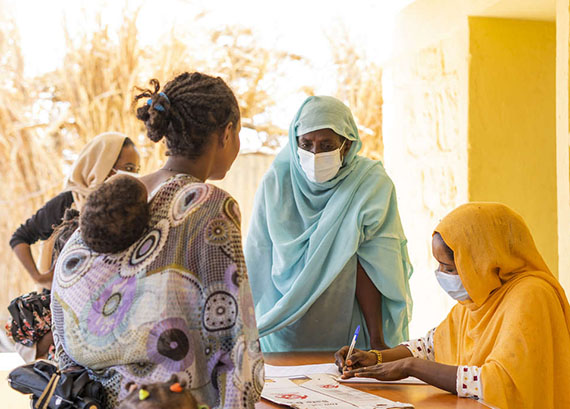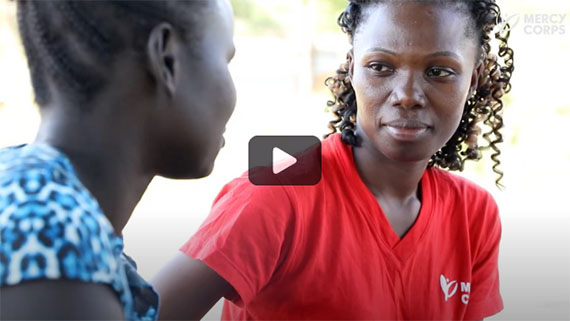
Dear Friend, Extreme weather events. Violent political conflict. A rapidly-spreading pandemic. When just one of these occurs, it’s a crisis for those caught in the middle. Yet in many humanitarian crises worldwide, multiple disasters — situations both sudden (like a hurricane) and protracted (like poverty) — may lead to what are called "complex crises," or complex emergencies.
So how do our teams who serve people living in some of the world’s most complex crises begin to address the multiple causes and effects of natural and human-made disasters? To understand our approach in action, consider our work in Ethiopia, where multiple crises are converging at an alarming pace. About 8.4 million people in Ethiopia need humanitarian assistance due to internal conflict, displacement, and recurrent natural hazards: flooding, drought, and desert locust infestations. Diseases like cholera, dengue, and now COVID‑19 compromise health and livelihoods. While the challenges here are enormous, we begin in Ethiopia as we do in other complex crises worldwide: by tackling the root causes that put people at risk. Our aim is to help people and their communities withstand and recover from climate- and conflict-related shocks and stresses. For example, as droughts depleted the health of their livestock, disrupting food supplies and income, we helped Ethiopian farmers by providing vouchers for emergency fodder and veterinary services. Small businesses affected by flooding combined with COVID‑19 transport restrictions were able to stay open when we provided stimulus payments, stabilizing local economies. For Ethiopians who have been forced to flee to neighboring Sudan due to ongoing violent conflict, we support a refugee camp health center which provides basic medical services. 
Um Rakuba camp in Sudan, where Mercy Corps supports a health center, currently houses about 20,000 refugees, with hundreds more arriving every day, mainly from Ethiopia.
As COVID‑19 brought Ethiopia’s crisis to a new level of complexity, our team was able to recognize an opportunity within the COVID‑19 response. We identified women- and youth-owned small businesses that could pivot to produce face coverings and hand-washing stations, and market soap and cleaning supplies. The businesses we help support produced more than 130 handwashing stations, 840 liters of liquid soap, and more than 1,200 masks for schools, markets, and offices, turning these critical health needs into valuable local economic opportunities. Complex problems require complex solutions. They require constant adaptation and innovation. Our aim is to layer fresh solutions into our current programming as efficiently and seamlessly as possible, rather than pivoting to a brand new approach, as new complexities emerge. And it all starts by believing in the power of people’s potential to help generate the best solutions to the problems they face. With more than 40 years of experience in global emergency response, it is the people we serve — their determination, creativity, and willingness to rebuild stronger — that inspire and guide our work. To learn more about our approach to emergency response worldwide, please visit our website, or watch our short video on Youtube. 
Your ongoing support helps fuel this important work. Thank you, The Mercy Corps team |
| STAY CONNECTED |
|---|
|
||||||
